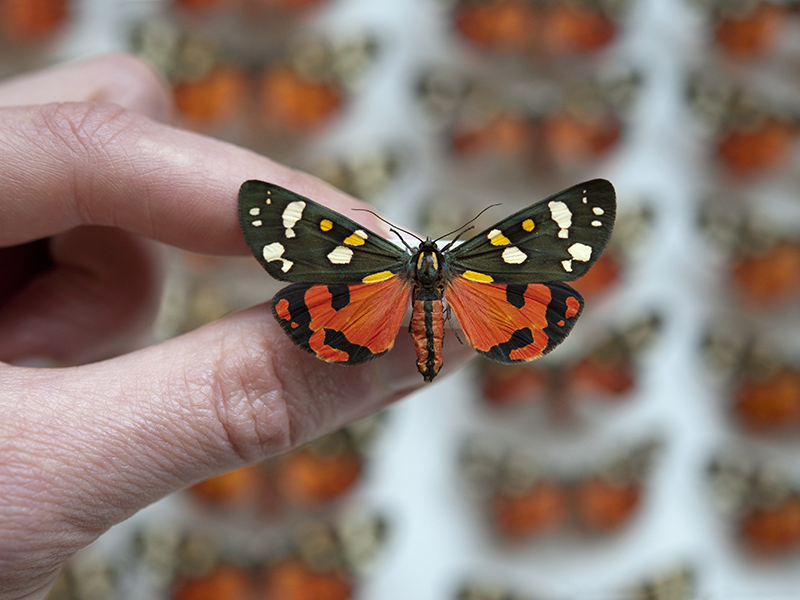The National Lottery Heritage Fund has awarded Oxford University's Museum of Natural History £703,700 for its ambitious HOPE for the Future – Heritage, Outreach and Preservation of Entomology project.
The aim of the project is to safeguard the museum's nationally-significant British insect collections, create new public spaces, and embark on a major programme of community outreach and education.

HOPE for the Future will re-house and make more accessible the museum's 1.1 million British insects, a collection which spans almost the entire history of British entomology.
As public awareness of the climate and biodiversity crisis increases, such museum collections are vital in understanding the extent of species loss and ecology damage, as well as evaluating conservation efforts that are underway.
Connecting with the public
The project's outreach and education programme will reach both young and older people and two new public areas will be created inside the museum: an important Pre-Raphaelite-designed space, the Westwood Room, will be restored to its original 1860 condition and will be opened to the public for the first time in over 100 years; and a new British insect gallery – the Ellen Hope Gallery – will be installed, named after the co-founder of the Hope Entomological Collections along with her husband Frederick William Hope.
The funding will also enable the museum to employ a range of new staff to support the project, including collections assistants and a community outreach officer.
Professor Paul Smith, Director of Oxford University Museum of Natural History, says: 'HOPE for the Future is an apt name for this project: it will protect the British material in the Hope Entomological Collections for future generations, while at the same time demonstrate the value of such material in monitoring and reducing biodiversity loss due to human impacts.'
Stuart Hobley, Area Director London & South at The National Lottery Heritage Fund, adds: 'The British Insect Collection is an incredibly valuable part of our natural heritage, charting the story of 150 years of British bugs and entomology. Now, thanks to National Lottery players, the collection will be saved to continue informing vital research and inspiring new generations to love and protect some of our smallest yet most important species.'